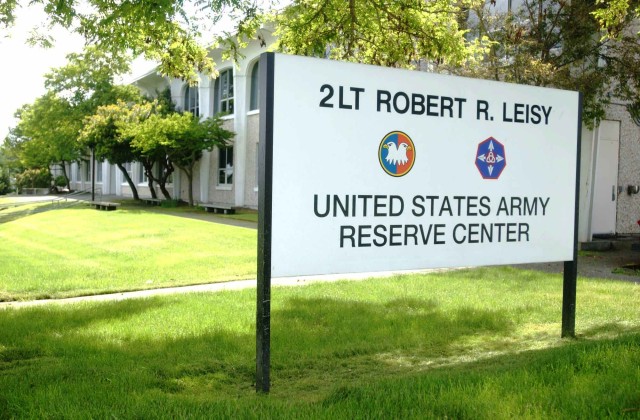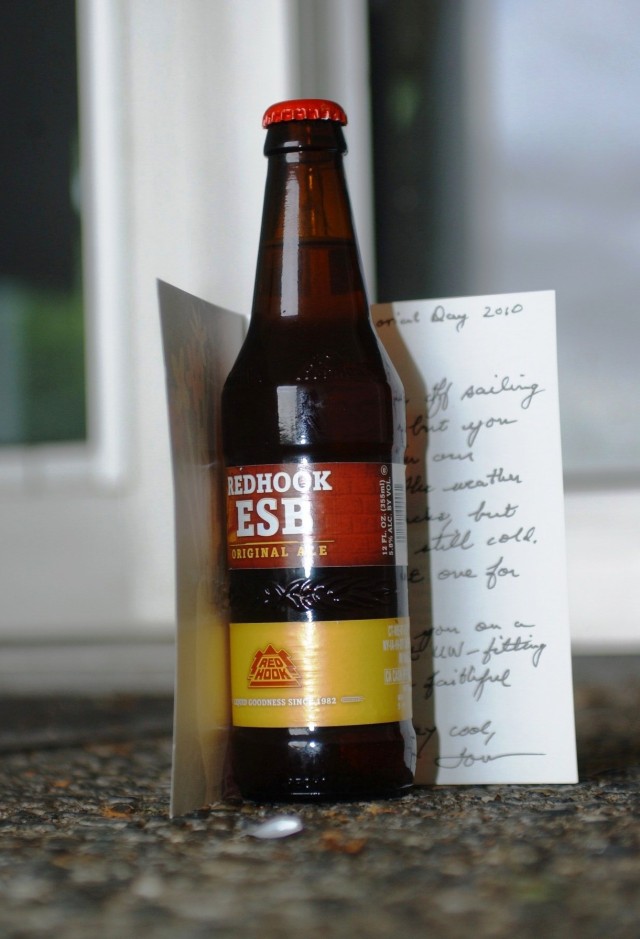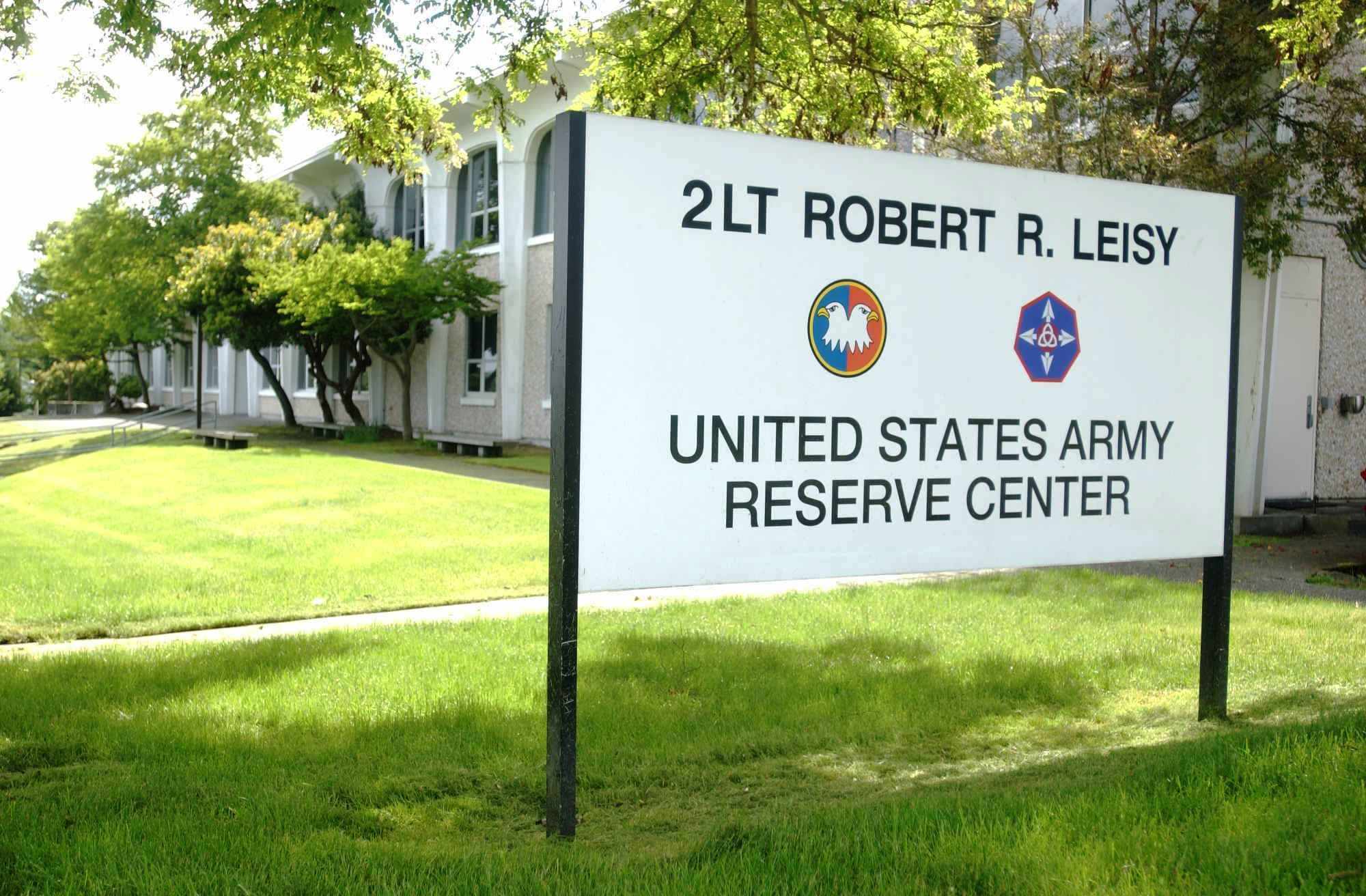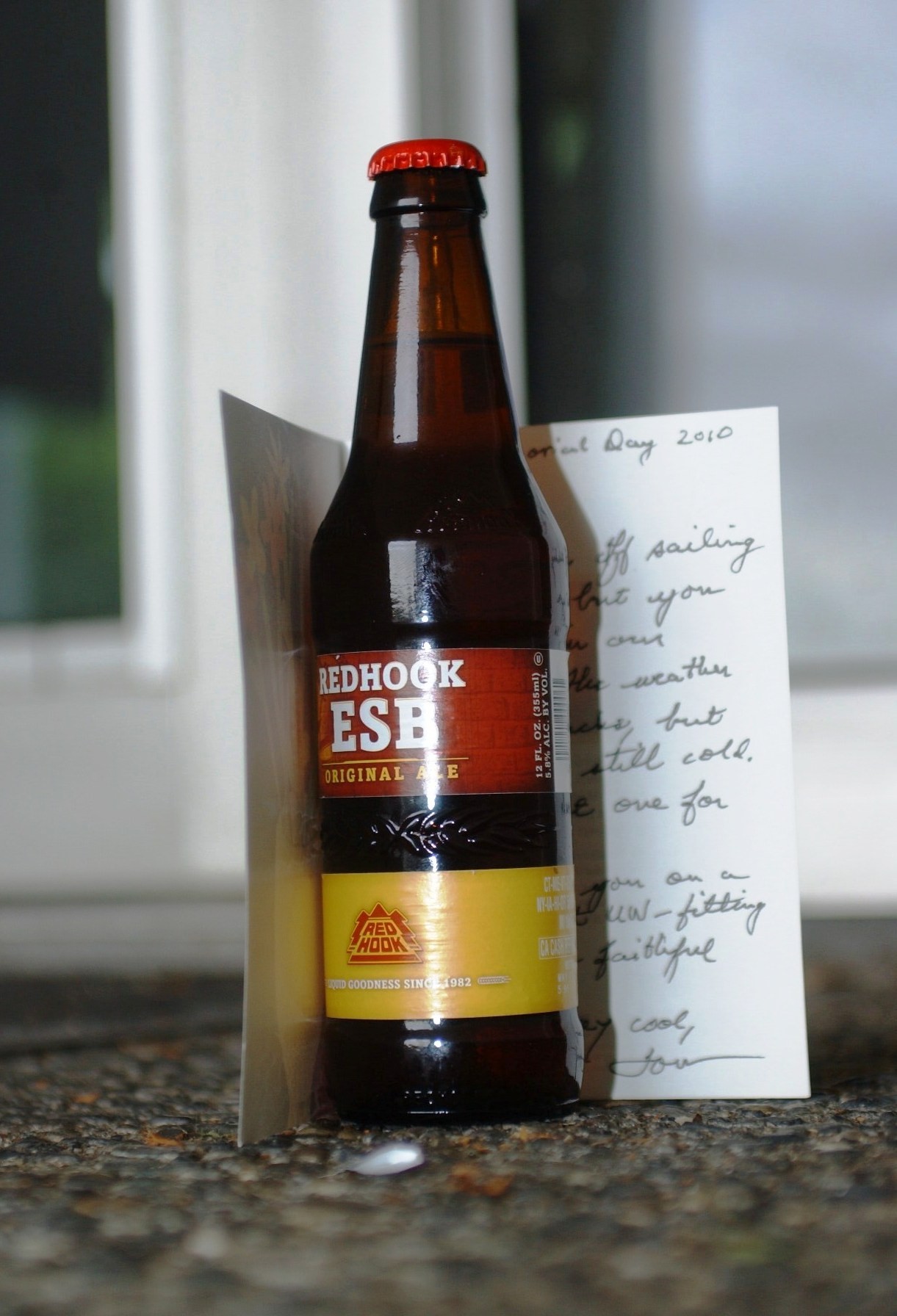SEATTLE - "The weather this year sucks, but the beer is still cold," reads the handwriting on the card. "We'll hoist one for you."
For more than 30 years on Memorial Day, notes, cards, and flowers - along with a single bottle of beer - have been left at the door to the U.S. Army Reserve Center at Fort Lawton.
The building is named after 2nd Lt. Robert R. Leisy, a native of Seattle's Magnolia neighborhood, who was awarded the Medal of Honor posthumously after sacrificing his life in 1969 to save those of the men he led in Vietnam.
For more than 20 years, no one at Fort Lawton knew where the tributes came from; the notes were signed simply, "Susie" or "Tom."
Bob Leisy was 24 when he died. A member of Seattle's Queen Anne High School class of 1963, Leisy graduated from the University of Washington in 1968. A member of Army ROTC at UW, Leisy was commissioned a second lieutenant in the infantry.
He arrived in Vietnam late in September 1969, and was assigned as a rifle platoon leader in Company B, 1st Battalion, 8th Cavalry Regiment, part of the famed 1st Cavalry Division.
Like soldiers have for generations, Leisy sent a steady flow of letters back to his family and friends in Washington. Many of them are preserved at Fort Lawton and UW.
Leisy's letter home to his parents, dated Dec. 1, suggested he might choose a different career path after he got home and finished his Army commitment.
"I want to tell you I don't think I will stay in the Army," he wrote. "There are a great many things I like about the particular job I have now. But I think the promotions after the war is over will be extremely slow...."
That letter would be the last Leisy wrote.
The next day, Leisy's platoon was conducting a reconnaissance patrol in Phuoc Long Province. One of the squads was attacked by a heavy North Vietnamese force and pinned down. Leisy took the rest of the platoon - about 30 men - and moved to rescue the trapped squad.
An Army after-action report would later estimate that Leisy's platoon was outnumbered 10-to-1.
As the troops moved through the jungle, Leisy spotted a North Vietnamese soldier preparing to fire a rocket-propelled grenade at his men. Without time to shout a warning, Leisy jumped on his radio operator, Bernie Baillargeon, shielding him from the explosion and protecting the platoon's communications.
B Company's three platoons were spread out across the area. If the radio had been hit, unit cohesion would have been lost, and chances of the entire company being wiped out were very real.
One of Leisy's hands was almost torn off by the explosion. He had sustained a severe wound to his thigh, and was losing a lot of blood.
Leisy's Medal of Honor citation tells the rest:
"Despite his mortal wounds, 2nd Lt. Leisy calmly and confidently continued to direct the platoon's fire. When medical aid arrived, 2nd Lt. Leisy valiantly refused attention until the other seriously wounded were treated."
The platoon's medic was unable to save Leisy, and he died from his injuries. He was awarded the Medal of Honor by President Richard Nixon in 1971.
The Robert Leisy Army Reserve Center at Fort Lawton was dedicated in 1972. Leisy's parents were present for its dedication and opening; both have now passed away.
According to longtime Fort Lawton employees, sometime during the 1980s a single bottle of beer, sometimes accompanied by a note, a card, or flowers, began to be left at the door to the reserve center on Memorial Day.
For more than 20 years, the identities of the person or persons leaving the memorials at the reserve center were unknown. But some investigative work by a Seattle Post-Intelligencer reporter in 2004 tracked them down: Tom Weingarten, and his sister, Susie Weingarten, who had grown up with Leisy in the 1950s.
"The whole point of my anonymity is that this is not about me," Susie Weingarten said at the time. "It's about Leisy and people like Leisy. Memorial Day is when you are supposed to honor the war dead.
"That's why I do it," she said. "It's not that hard."
This year's card was left by Tom Weingarten.
"Susie is off sailing this year," it reads, "but you are still in our thoughts."
Tom Weingarten said the memorial was started by Susie in the 1970s, after the Leisy Army Reserve Center was dedicated.
"There wasn't really any planning to it," he said. "It's something that just happened and kept on going."
Tom Weingarten said the yearly tribute is a way to remember the sacrifices made by Leisy and others in the service.
"It's our way of remembering Bob and acknowledging the reserve unit," he said.
The era of the Leisy Army Reserve Center will soon be coming to a close, however.
Fort Lawton, the installation on which the center is located, was placed on the Base Realignment and Closure list in 2005. The 364th Expeditionary Sustainment Command, the Leisy building's current occupant, is scheduled to move to a new facility in Marysville, Wash., sometime in 2011. A final decision about relocating the memorials and tributes to the building's namesake has yet to be made.
"We've been in coordination with the University [of Washington] about a lot of the items," said Howard Graves, who handles protocol issues for the 364th. "Since he was a UW graduate, it'd be fitting."
Every year, the memorials are gathered and added to a display case in the building's lobby, remembrances of Bob Leisy more than 40 years after his death.
Photos from his childhood; photos from leave in Seattle before shipping out to Vietnam; photos taken after arriving in-country. Some show him sporting a mustache, like cavalrymen of the Old West.
There are other things, too: G.I. Joe figures, copies of letters and postcards Leisy sent from overseas, bottles of beer and notes from years past, the program from his White House Medal of Honor ceremony in 1971.
"It would have been wonderful," Leisy's mother, Josephine, said at the time, "if Robert could have experienced it."
Until the center closes its doors for the final time, Bob Leisy's childhood friends will continue to remember the fallen soldier in their special way on Memorial Day.
"They put you on a memorial at UW," reads the card, "fitting for such a faithful Dawg!
Stay cool -
Tom."
Capt. Christopher Larsen is the public affairs officer for the 364th Expeditionary Sustainment Command, Seattle, Wash.




Social Sharing